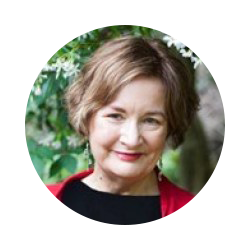
Jackie French AM
Children’s Week Ambassador
The Right to Play
“Play” is a strange word. Grown up “playing” is entirely different from “kids” playing. When we adults “play” it means having fun, goofing off, doing something unnecessary that we enjoy. Kids’ play is serious. In every culture in the world kids” games are how they practice to be
adults, or work out who they are, who they want to be, and how the world works. Throwing a ball against a wall? That’s learning focus and concentration. Chasing, hide and seek are learning how to relate to others, how rules can be flexible or followed. “Dolls” are imitating parenthood. Climbing trees is “discovering the world.”
We teach kids as parents, grandparents, adopted aunts and uncles, as football or netball coaches, as family friends. We give kids the vital
structures they need for life: eat well and politely at meal times, be polite, do not wear a purple tutu when the school rule says “uniforms only and no pink socks”, This is how you read…. But no matter how close we are to the child, there is so much we don’t know about what they still need to learn, and what they are ready to practice now.
Kids know instantly: this is the time to challenge the waves in the surf; to pretend I’m hunting a velociraptor, to work out if I can level up in this game with intense and absolute focus. We need to give kids free time so they can play the games they want, not the ones we organise for them. We also – and this is the hard one – need to give our kids the opportunity to choose the games they want to play. Sometimes, when I speak to schools, I ask “Who was bored last weekend?” Most hands go up.
“What did you do?”
“Watched a movie. Played a video game.”
“Why, if they were boring?”
The kids shrug. “There was nothing else to do.”
The play opportunities we so often offer our kids are really child care in disguise – keep the kids quiet and occupied so we can get the washing done, dinner on, school uniformed ready for next week… Even a trip to the park only offers structured play: Here is the equipment –
use it as it was designed. The best “play” opportunities offer a thousand ways of using them. There are possibly unlimited ways you can play with a ball. From seeing if you can bounce it on your head to throwing it for the dog or increasingly complex competitions with friends, or kids who may become friends by the time the game is over. A beach doesn’t just offer swimming, but can become a construction site to bury Dad, or your own legs, or stop the tide coming in, hunt for drift wood, count the waves to see if the seventh wave is really the biggest, or is there another pattern or none at all, can we see a dolphin… insert another five hundred possibilities here.
A tree can be a climbed or a goal post, a pretend cubby or the central post for one, where you can ride a unicorn or an elephant on the branches, or find out what lerps are, or the basics of botanical classification. In other words, “letting kids play” is not just freeing them from jobs or coaching lessons: it’s taking them to places where there are trees with fallen bark or weird leaves and bushes to hide under and not yelling “Be Careful” every time they climb a tree. It’s accepting that their own room, or under the bed, can become another universe where they are the hero or heroine; that there will be times when they need to turn the kitchen table, or every sheet in the house and the sofa into a cubby or a spaceship to Mars.
Kids” play is often noisy, frequently messy and almost always inconvenient. True play isn’t structured by adults, but invented by the child, because that’s what they need just now. It is also the way to create fulfilled, creative, resilient and happy adults, and to teach them what freedom truly is…and how, at the end of the day, we all need to clean up the mess we’ve left behind, and that this is a duty for grown-ups, too – even if so many adults have still failed to learn to clean up the mess they make directly, or have caused to be made indirectly by their lifestyle choices – on the planet that belongs to the children of this world, and all the generations still to come.
Every time I see kids climbing a hill in a national park, wondering “Do you think anyone else has ever come this way?” or teenagers finding ways to challenge adults and companies in the law courts to “clean up the mess you’ve made when you’ve finished playing” I am silently yelling “hurray”. Kids” play should be fun – but it’s also the most serious job in the world.